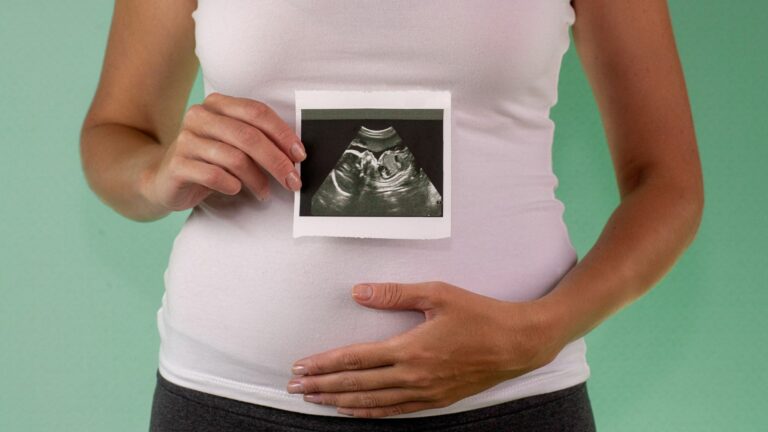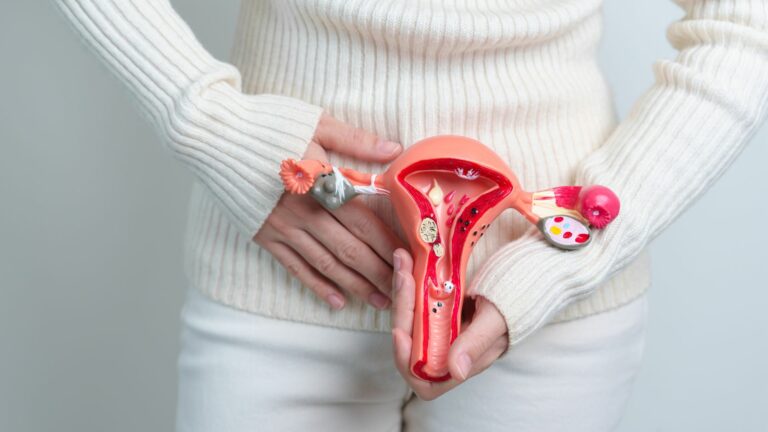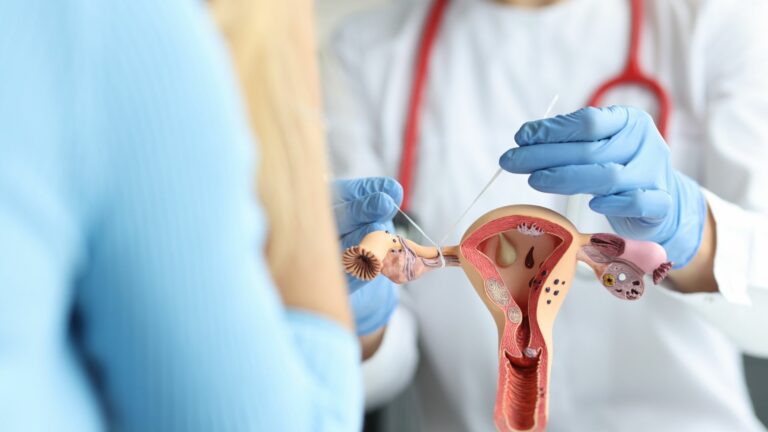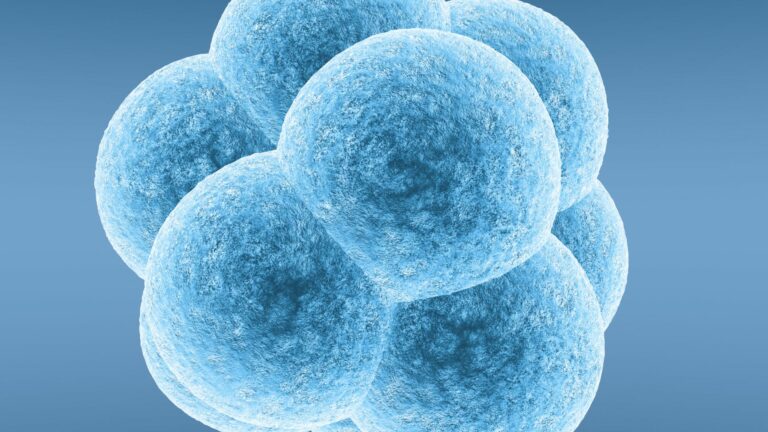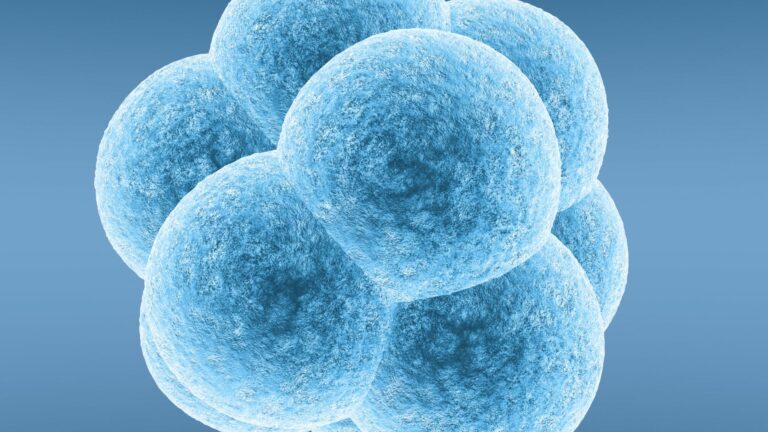
Varicoceles are akin to varicose veins but located in the scrotum, the pouch that holds the testicles.
They are depicted as enlarged and twisted veins and are surprisingly prevalent, affecting up to 15% of the general male population and about 40% of men in India facing infertility challenges.
With such significant numbers, understanding the impact of varicoceles on a man’s fertility becomes a cornerstone of reproductive health.
In vitro fertilization (IVF) is a sophisticated fertility treatment that greatly depends on the health of sperm. Key sperm parameters play crucial roles in the success of IVF, including sperm count, motility, and morphology.
The question then arises: when is surgical intervention, specifically varicocelectomy—the removal of varicoceles—beneficial, particularly in a scenario where a man’s fertility must be optimized for IVF?
This is crucial to consider, especially when exploring options for enhancing IVF success rates through various procedures available, including preimplantation genetic screening.
Key Takeaways
| Aspect | Detail |
|---|---|
| Importance of Varicocele Treatment | Mitigates the adverse effects on sperm parameters, improving fertility |
| Role of IVF | Crucial advanced reproductive treatment that benefits from healthy sperm |
| Significance of Varicocelectomy | Can enhance sperm quality, benefiting subsequent IVF procedures |
| Comprehensive Fertility Evaluation | Necessary for informed decisions on varicocelectomy before IVF |
Understanding these dynamics is pivotal for couples considering IVF as a recourse for conception, especially when compounded by the presence of a varicocele. T
o gain a deeper understanding of the IVF process and how best to maximize its efficacy, please refer to how to increase IVF success chances.
IVF and the Varicocele Challenge
Varicoceles affect the quality and production of sperm by potentially raising the temperature in the testicles, thus altering the natural environment where sperms mature.
The changes in sperm caused by varicoceles are not unnoticed; they often manifest in decreased count, poor motility, and abnormal morphology—all of which are crucial factors for successful fertilization in an IVF cycle.
To understand more about IVF and how varicoceles might impact it, learning about what IVF is and the IVF process and procedures will provide a comprehensive backdrop.
Furthermore, for individuals looking for regional information regarding IVF centers, pages such as IVF centers in Vijayawada, IVF centers in Jodhpur, IVF centers in Madurai, IVF centers in Raipur, and IVF centers in Kota can be immensely helpful.
As we continue our exploration into IVF and the impact of varicoceles on reproductive health, remember that addressing this male reproductive issue not only enhances the prospects of natural conception but can also boost the overall outcomes of assisted reproductive technologies like IVF.
Varicocele’s Impact on Sperm Parameters
Varicoceles can lead to impaired sperm production and function, a crucial factor for couples considering IVF. The detrimental effects of varicoceles on sperm health include changes in sperm count, motility, and morphology.
These parameters are pivotal in the fertilization process during IVF, essentially affecting the likelihood of achieving a successful pregnancy.
Mechanism of Damage:
The leading theory suggests that varicoceles increase the scrotal temperature, which can be detrimental to sperm production.
High temperatures disrupt normal spermatogenesis (the process of sperm production), leading to reduced sperm quality and quantity.
This thermal regulation malfunction is crucial as even small changes in temperature can have significant effects on sperm health.
Specific Effects on Sperm Parameters:
- Sperm Count (oligospermia): Varicoceles are frequently associated with reduced sperm count. A lower count can decrease the odds of a successful conception, both naturally and via IVF.
- Sperm Motility (asthenospermia): Effective motility is crucial as sperm need to travel through the female reproductive tract to reach and fertilize the egg. Varicoceles often lead to decreased sperm motility, complicating these natural dynamics.
- Sperm Morphology (teratozoospermia): The shape and structure of sperm affect their ability to penetrate and fertilize an egg. Varicoceles may cause a higher proportion of sperms to develop abnormal shapes, reducing fertilization potential.
Understanding Your Semen Analysis Report:
For men diagnosed with varicoceles, undergoing a semen analysis is a critical step. This test evaluates the health and viability of sperm.
Here’s what to look for in a typical semen analysis report:
- Volume: This measures the total amount of semen produced during ejaculation, indicating the gland’s function involved in semen production.
- Concentration: Reflects the quantity of sperm per milliliter of semen. A lower count can be indicative of varicoceles or other health issues.
- Total Mobility: Assesses the percentage of moving sperm, crucial for natural conception and IVF success.
- Progressive Motility: Focuses on sperm moving actively forward, an essential factor for successful egg fertilization.
- Morphology: The percentage of sperm with a normal shape, critical for penetrating and fertilizing an egg.
Actionable Steps:
- Consult a Specialist: If you suspect you have a varicocele or if your semen analysis report shows suboptimal results, consulting a urologist or a fertility specialist is essential.
- Regular Check-ups: Regular monitoring can help assess any changes over time, especially after treatment or surgery.
- Healthy Lifestyle: Maintaining a healthy lifestyle with proper nutrition and regular exercise might help improve overall sperm quality and health.
For more detailed information and to view sample semen analysis reports, considering visiting resources like the [American Society for Reproductive Medicine (asrm.org)] where guidelines and patient education materials are provided.
Varicocelectomy: Procedure, Benefits, and Considerations in the Indian Context
Varicocelectomy is a surgical procedure aimed at removing or correcting varicoceles to improve male fertility.
Understanding when this surgery is beneficial, especially in preparation for IVF, is critical for couples looking to optimize their chance of conceiving.
Surgical Techniques:
Varicocelectomy can be performed using various techniques, each with its own set of advantages and considerations:
- Microsurgical Varicocelectomy: This technique involves a small incision in the groin through which a microscope is used to precisely identify and ligate the affected veins. It is known for its high success rates and low recurrence rates.
- Laparoscopic Varicocelectomy: This minimally invasive procedure uses several small incisions in the abdomen to allow a laparoscope and other surgical instruments to access and repair the varicoceles.
- Percutaneous Embolization: This non-surgical option involves inserting a catheter into a vein to place coils or a sclerosing agent to block abnormal blood flow. It’s less invasive but typically used when surgical options are not viable.
Potential Benefits of Varicocelectomy for Sperm Parameters:
Improvements post-varicocelectomy can significantly influence IVF outcomes. Benefits often observed include:
- Increased Sperm Count: Many men experience a noticeable improvement in their sperm count following surgery.
- Enhanced Sperm Motility: Improved motility post-surgery increases the likelihood of sperm reaching and fertilizing the egg.
- Improved Sperm Morphology: Surgery can lead to a decrease in abnormally shaped sperm, potentially enhancing the effectiveness of subsequent IVF cycles.
Important Considerations Before Surgery:
Choosing to undergo varicocelectomy requires thoughtful consideration:
- Pre-Operative Analysis: A thorough semen analysis and possibly additional diagnostic imaging will be necessary to assess the severity and impact of the varicocele.
- Consultation with a Specialist: Discussing with a urologist who specializes in male infertility is crucial. They can provide a detailed understanding of the procedure, expected outcomes, and recovery process.
- Cost and Recovery: Understanding the cost of varicocelectomy in India and the expected recovery timeline is important for planning both financially and for future fertility treatments.
Actionable Steps:
- Evaluate with a Specialist: Before deciding, consult with a urologist and possibly a fertility specialist to discuss the benefits and risks based on your specific condition.
- Review Financial Options: If cost is a concern, review possible financial aid or payment plans that might be available.
In exploring treatment options for male infertility, especially in the context of IVF, varicocelectomy offers a concrete step toward improving sperm quality and function.
The decision should be made collaboratively with healthcare providers, taking into consideration the individual’s unique medical situation and any constraints or preferences regarding treatment methods.
Varicocelectomy Before IVF: When is it Beneficial?
The decision to undergo varicocelectomy prior to attempting IVF hinges on several personalized factors that must be carefully evaluated by both the patient and their healthcare provider.
Individualized Approach:
It is essential to adopt a tailored approach when deciding whether to perform varicocelectomy before IVF:
- Clinically Evident Varicocele: If a varicocele is easily detectable and symptomatic, it might warrant consideration for surgical intervention, especially if associated with significant alterations in sperm quality.
- Significantly Abnormal Semen Analysis: For men whose semen analysis shows considerable deficiencies in sperm count, motility, or morphology, varicocelectomy might enhance their reproductive outcomes.
- Unexplained Infertility: In cases where a couple faces unexplained infertility and a varicocele is present, surgery might offer a potential benefit in improving IVF success rates.
Integration with IVF Planning:
The timing of varicocelectomy in relation to planned IVF cycles remains a critical aspect:
- Recovery and Effects: Post-surgery, it generally takes about three to six months for improvements in sperm parameters to become apparent. This timeline needs to be integrated into the IVF planning process.
- Sequential Treatment Planning: Some couples might opt to try natural conception after varicocelectomy before proceeding to IVF if the surgery results in significant improvement in sperm parameters.
Considerations and Preparations:
- Comprehensive Fertility Assessment: Both partners should undergo a thorough fertility evaluation to ascertain the best course of action. This assessment includes not just semen analysis but also checks the reproductive health of the female partner.
- Expert Consultations: Engage with both a urologist and a fertility specialist to discuss the potential advantages and limitations of undergoing varicocelectomy in the context of existing fertility challenges.
The decision regarding varicocelectomy before IVF must be made with a complete understanding of the potential benefits and the natural variability in outcomes associated with the surgery.
Actionable Steps:
- Second Opinion: Always consider getting a second opinion to confirm the need for varicocelectomy.
- Plan Ahead: Schedule the surgery keeping in mind the recovery period and subsequent IVF treatments to ensure there is adequate time for sperm quality improvement.
The integration of varicocelectomy into the IVF preparation process can be a pivotal decision for many couples.
Hence, the subsequent section will delve deeper into comparing IVF outcomes with and without prior varicocelectomy, further exploring the role of advanced techniques such as Intracytoplasmic Sperm Injection (ICSI) in enhancing fertilization success rates.
IVF with or without Varicocelectomy: Weighing the Options
Navigating the decision of whether to undergo varicocelectomy prior to IVF requires understanding the potential outcomes and differences of IVF performed with or without pre-surgical intervention on varicoceles. Both paths have their unique advantages and considerations.
IVF following Varicocelectomy:
Potential Benefits:
- Improved Sperm Quality: Varicocelectomy can lead to enhanced sperm parameters such as count, motility, and morphology, potentially improving the fertilization success rate during IVF.
- Higher Quality Embryos: Improvement in sperm quality may lead to higher quality embryos, which are crucial for successful implantation and pregnancy.
Considerations: - Surgical Risks and Recovery: As with any surgical procedure, varicocelectomy carries risks and requires a recovery period which needs to be planned around the IVF schedule.
- No Guarantee of Success: While many men experience significant improvements in sperm quality post-surgery, results can vary, and there is no absolute guarantee of enhanced IVF success.
IVF without Varicocelectomy:
Alternative Approaches:
- Direct IVF: Couples may choose to proceed directly to IVF without addressing the varicocele, especially in cases where time is a constraint or if the varicocele is less severe.
- Utilizing ICSI: Particularly effective in cases of male infertility, ICSI involves directly injecting sperm into the egg, which can mitigate some of the challenges posed by damaged sperm due to varicoceles.
Considerations: - Possibly Lower Success Rates: Skipping varicocelectomy could lead to the use of suboptimal sperm, potentially reducing IVF success rates unless complemented by techniques like ICSI.
- Cost-Effectiveness: Directly moving to IVF might be more cost-effective for some couples, eliminating the costs and recovery time associated with surgery.
Making an Informed Decision:
Deciding between IVF with or without prior varicocelectomy should involve:
- Thorough Fertility Evaluation: A detailed assessment, including semen analysis and potentially genetic screening, can provide insights into the specific impacts of varicoceles on fertility.
- Expert Guidance: Discussions with both a fertility specialist and a urologist are crucial to weigh the medical, financial, and personal factors involved in each route.
- Long-Term Planning: Consider the broader timeline which includes potential recovery from surgery and multiple IVF cycles if needed.
Actionable Steps:
- Educate Yourself: Understanding both processes and their implications thoroughly will help in making an informed decision. Resources like the information on IVF success rates and guides on how to increase IVF success chances can be invaluable.
- Discuss and Decide: Have open and honest discussions with your healthcare provider and partner about the best course of action based on your specific circumstances.
Conclusion: Working with Your Healthcare Team for Optimal IVF Outcomes
Embarking on the journey of IVF entails navigating a series of complex decisions, especially when compounded by varicoceles.
The choice between proceeding directly to IVF or first undertaking varicocelectomy hinges on a nuanced understanding of individual conditions, the potential benefits of improved sperm quality, and the overarching goals of fertility treatment.
The Importance of a Multidisciplinary Approach:
- Collaborative Care: Working closely with a multidisciplinary team that includes urologists, fertility specialists, and potentially other healthcare professionals ensures a holistic approach to treatment planning.
- Personalized Fertility Strategy: Each couple’s fertility path is unique. Tailored treatment plans that consider personal health, preferences, and fertility goals are crucial for success in the journey toward parenthood.
Building a Strong Support System:
- Emotional and Psychological Support: The IVF journey can be emotionally taxing. Accessing psychological support and counseling can help manage the stress and emotional upheaval associated with fertility treatments.
- Community and Support Groups: Engaging with IVF support groups in India offers the opportunity to connect with others who are facing similar challenges, providing a sense of community and shared experience.
Future Directions and Advancements:
The field of reproductive medicine is continuously evolving, with advances in technology and medical practices enhancing success rates and offering new hope to couples facing infertility.
Innovations such as refined IVF techniques and improved surgical procedures for varicocelectomy continue to push the boundaries of what is possible in fertility treatments.
Actionable Steps Moving Forward:
- Continued Monitoring and Adaptation: Regular consultations and ongoing monitoring are essential, as fertility statuses can change over time.
- Stay Informed: Keeping abreast of the latest research and advancements in fertility treatments can provide options that may not have been available previously.
- Seek Comprehensive Care: Choosing a fertility clinic that offers comprehensive services, including genetic screening and advanced IVF techniques, can provide a more integrated approach to fertility care.
Closing Thoughts:
Navigating the complexities of IVF and varicocele management demands patience, resilience, and informed decision-making.
By collaborating with experienced medical professionals and taking advantage of the support resources available, couples can enhance their probability of achieving their dream of parenthood.
In their journey toward creating a family, it’s important for couples to maintain hope and persistence, drawing on the best of medical science and personal support to guide their path.
Additional Resources for Further Assistance:
As we conclude this comprehensive overview, remember that you are not alone in your journey. The collaborative efforts of your healthcare team, combined with your inner strength and resilience, will guide you through the challenges and triumphs of IVF and fertility treatment.
Thank you for your attention to this detailed exploration of IVF and varicocele. It is our hope that this information empowers you with knowledge and reassurance as you navigate your reproductive journey.


